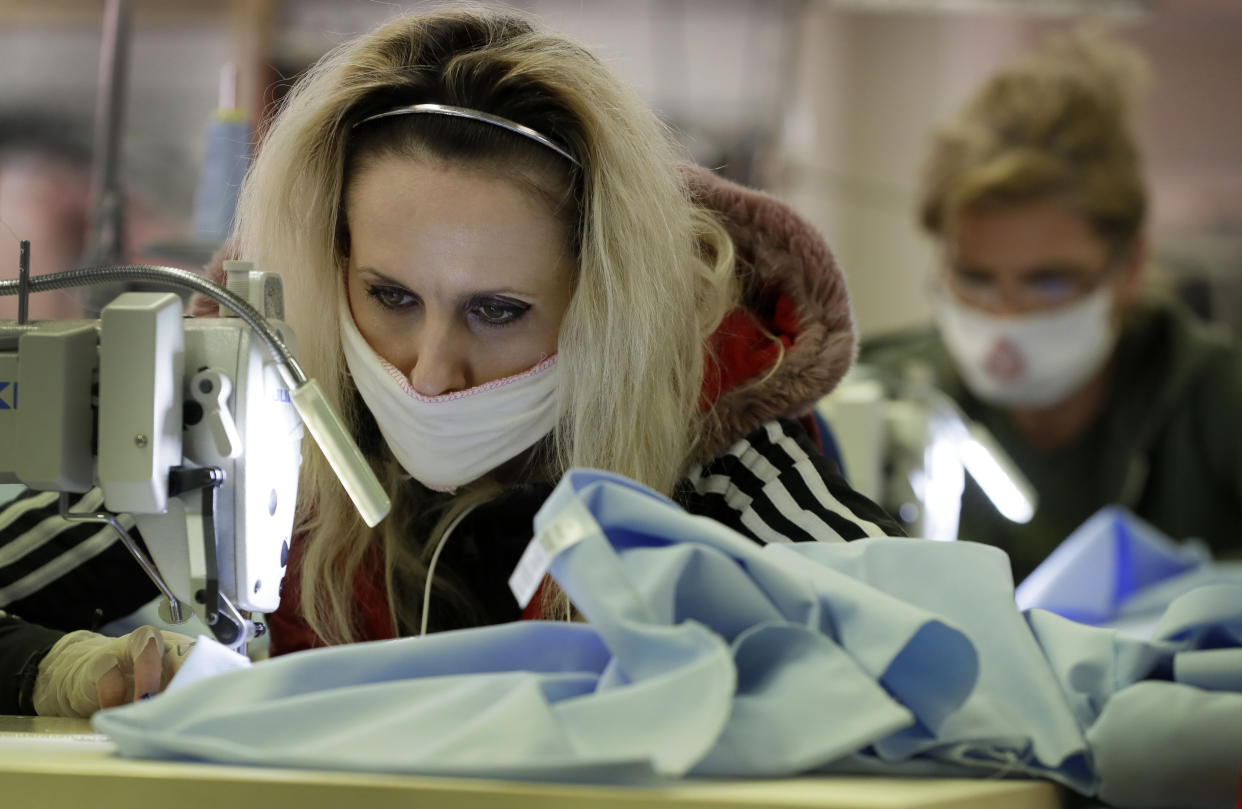Coronavirus: UK manufacturing stabilises after historic collapse

Britain’s manufacturing sector stabilised in June, following a historic collapse caused by the COVID-19 pandemic.
A closely watched private sector survey of UK manufacturing showed that activity was flat in June, after a precipitous collapse over the previous two months.
IHS Markit’s Purchasing Managers Index (PMI) registered at 50.1, in line with economists expectations. PMIs are given on a scale of 0 to 100, with anything above 50 signalling growth and anything below marking contraction.
“June completed a marked turnaround in momentum in UK manufacturing, as the sector switched from April's record contraction back to stabilisation in the space of two months,” said Rob Dobson, director at IHS Markit.
“Output edged higher and domestic demand firmed as lockdown restrictions loosened, factories restarted and staff returned to work. Business optimism also recovered to a 21-month high.”
READ MORE: UK house prices see first annual drop since 2012
Manufacturing PMI fell to a record low in April. Conditions have eased since but IHS Markit’s experts warned last month the sector was still facing “its deepest downturn in recent memory.”
Factories across the country have been forced to shut as a result of the COVID-19 pandemic and supply chains have been disrupted. Demand has also slumped as consumer and business spending has collapsed.
Duncan Brock, group director at the Chartered Institute of Procurement & Supply, which helps compile the PMI survey, warned problems were far from over for the sector.
“Output remains at low levels and the sector’s weak position compared to pre-covid levels means there is a significant amount of catching up to do before manufacturing can relax into a period of growth,” he said.
“Purchasing continues to be hampered by battered and bruised supply chains, logistics difficulties and longer delivery times for the twelfth month in a row as suppliers adjust to the new normal.”
Brock and Dobson both warned of a looming jobs crisis in the manufacturing sector. June marked the fifth straight month that factories have shed jobs and last month saw one of the steepest falls in employment ever recorded in the 28 years of IHS Markit’s survey.
READ MORE: Sainsbury's warns of £500m COVID-19 hit as grocery sales jump 10%
“The main focus is now shifting towards the labour market,” Dobson said. “Concerns are rising about the potential for marked job losses, especially once the phase out of government support schemes begins.
“Economic conditions will need to improve markedly across the UK, or some support retained, if the labour market downturn is to avoid becoming more entrenched through the remainder of the year.”

